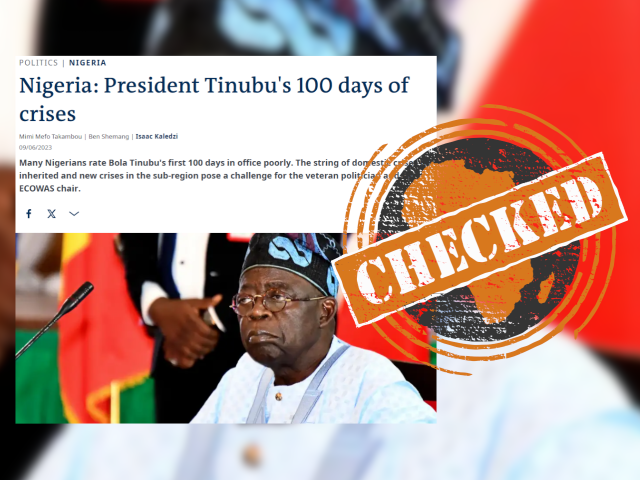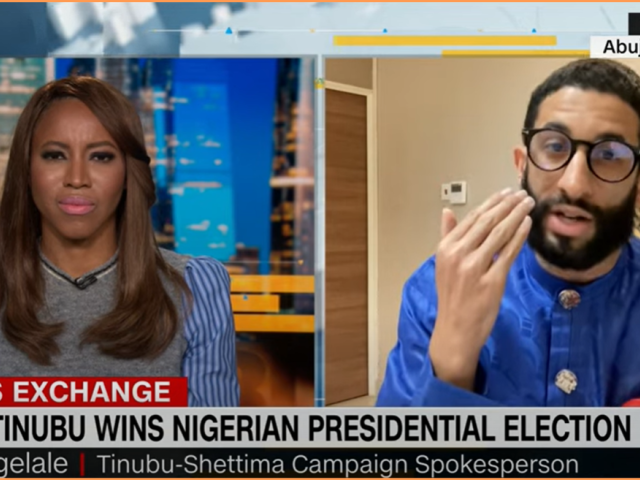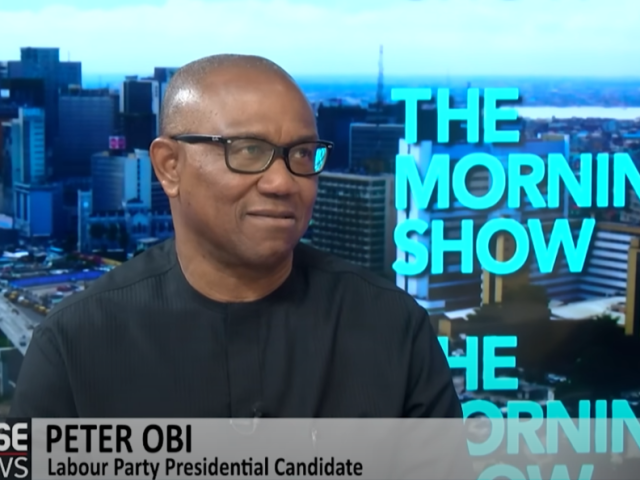IN SHORT: An image supposedly showing the meeting of Nigerian opposition leader Peter Obi and the president’s son Seyi Tinubu has gone viral. But the photo is a manipulated photo of the president's son meeting someone else.
A photo that seems to show a meeting of former Nigerian presidential candidate Peter Obi and Seyi Tinubu, the son of Nigeria’s president, has been posted on Facebook.

The caption to one 19 August 2023 post reads: “This is the son of the president Mr. Seyi Tinubu and his Excellency Mr. Peter ObiMr. Peter Obi Peter Obi. Time for politics has elapsed we are in governance now.”
Obi, a member of the Labour Party, is currently challenging Bola Tinubu’s 2023 election victory through the courts.
The image of Seyi Tinubu and Obi has triggered reactions from Nigerians, with some calling the meeting a “nice move” and others claiming it was “photoshopped”.
The image was also posted here, here, here, here, here and here.
But is the image genuine? We checked.
Manipulated photo
Africa Check did a Google reverse image search and found an almost identical photo in a report published in May. Tinubu wears the same black shirt and baseball cap and stands in the same stance, with his left hand on the back of a chair.
But the original shows the president’s son in conversation with Umar Faruk Lawal, elected president of the National Association of Nigerian Students.
Lawal is the convener of the Coalition of Civil Society Groups. The group quashed Bloomberg's report that the president's son acquired a US$11 million house in the United Kingdom.
The image circulating in August 2023 is a manipulated version of a photo taken in May. It doesn’t prove that Seyi Tinubu met with Peter Obi.
Republish our content for free
For publishers: what to do if your post is rated false
A fact-checker has rated your Facebook or Instagram post as “false”, “altered”, “partly false” or “missing context”. This could have serious consequences. What do you do?
Click on our guide for the steps you should follow.
Publishers guideAfrica Check teams up with Facebook
Africa Check is a partner in Meta's third-party fact-checking programme to help stop the spread of false information on social media.
The content we rate as “false” will be downgraded on Facebook and Instagram. This means fewer people will see it.
You can also help identify false information on Facebook. This guide explains how.





Add new comment